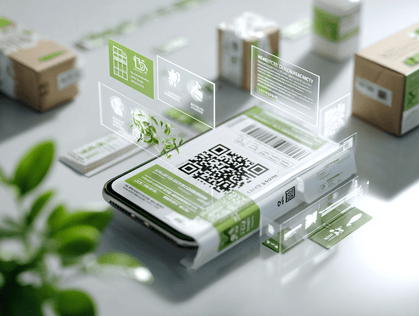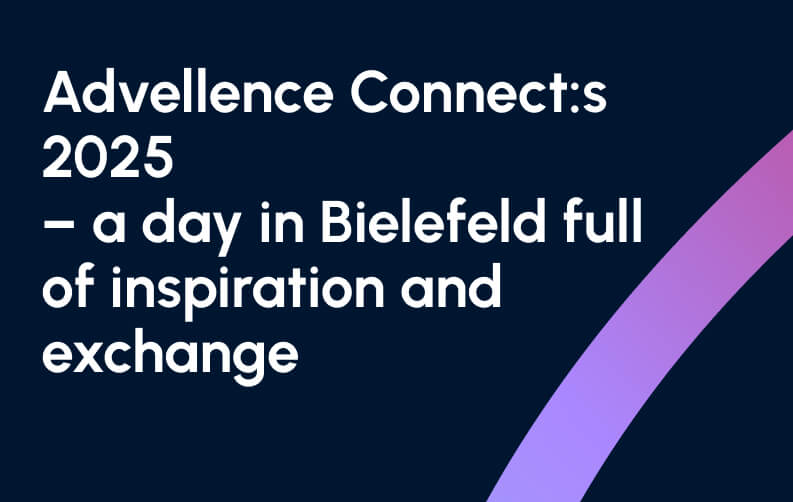October 12, 2022
Marketing Automation
Marketing automation uses software to automate monotonous marketing work. Marketing departments can automate repetitive tasks such as email marketing, social media posts, and even advertising campaigns – not just for efficiency, but also to give their customers a more personalized experience.

How Does Marketing Automation Work?
Marketing automation uses software to automate monotonous marketing work. Marketing departments can automate repetitive tasks such as email marketing, social media posts, and even advertising campaigns – not just for efficiency, but also to give their customers a more personalized experience. The technology behind marketing automation makes these tasks more efficient, faster, and easier to complete.
How Can I Use Marketing Automation in My Company?
When we look at the overall challenges companies face, we know that generating leads and retaining customers is paramount throughout the customer journey. Parallel to these goals, companies are confronted with a flood of data that is very valuable, but only if the data is evaluated, classified and interpreted accordingly. Marketing automation software can help overcome these challenges by making the data usable through the tools.
Most companies view marketing automation as a middle-of-the-funnel tool, ideal for nurturing leads through automated email deliveries. And although email marketing is a great use for marketing automation, this approach can result in a diminished customer experience without a common thread for prospects and customers. Prospects are squeezed through an imaginary sales funnel with random points of contact and irrelevant content. Instead of responding to individual customer needs, companies serve the same pattern over and over again.
However, automated marketing strategies should be used throughout the customer life cycle. When thoughtfully integrated, marketing automation creates fertile ground for healthy, long-term relationships with customers. When implemented in a well-founded manner, marketing automation offers three major benefits for a company:
Personalized Workflows
Every action taken by potential customers is an additional data point for the marketing strategy, because it reveals what customers are looking for right when the customer needs it. As helpful as this information is, it is impossible to manually track these behaviors. However, with marketing automation software, companies can use this data across multiple channels to precisely understand the needs of potential customers and deliver the right content at the right time. These workflows help steer qualified prospects to helpful content, resulting in warm leads that can then be carefully converted into customers. But marketing automation isn't everything. Since the focus is on the customer, companies can further integrate these leads with personalized workflows, turning them into loyal and returning customers.
Streamlined Processes
A company must create holistic and streamlined processes that focus on the customer. Processes must be developed that work across different functional teams so that customer effort is reduced at every stage of the journey. Breaking through silos and cross-departmental collaboration is required to create a consistent customer experience – from initial contact to purchase. With effective marketing automation, there is no need for complicated handover procedures anymore, because everything is automatically stored in a central data store, and internal workflows help to prioritize tasks as needed.
How to Get the Most out of Marketing Automation
Marketing automation is a combination of software, strategy, and customer focus. It makes it possible to provide potential customers with highly personalized, useful content that helps potential customers become enthusiastic customers and customers become loyal advocates. To get the most out of marketing automation, companies should integrate automation across their organization to break down silos and unite teams with time-saving processes. The focus must be on the customer journey and not on the needs of your own company. Potential touchpoints that benefit from marketing automation must be analyzed. Processes must also be developed that make it easier for customers to move from touchpoint to touchpoint. Contacts should be organized with a CRM that is integrated with marketing automation software so that every action taken by the customer is recorded as another data point. These data points must be used to connect customers to the next step in their journey – whether it's educational content, a sales representative, or a customer success check-in. The advantage of marketing automation is that you can apply this approach to thousands of customers at the same time.
A great marketing automation strategy keeps teams working in sync by prioritizing tasks and making handoffs a breeze. Contact records can be managed by the marketing team until the lead is warm and ready to be contacted by sales, after which automation assigns and notifies the salesperson. When the customer buys, all previous conversations and actions made by the customer along the way to the purchase can be traced. This is very valuable information that can be used to continuously optimize the customer journey. The process is not only seamless and efficient, but it also builds a long-term relationship between the customer and the company.
How Does Marketing Automation Impact Customers?
Marketing automation isn't just about what a company can do. It also pays off for your customers by solving common problems that have arisen in the age of the digital world and omnichannel customers. Customers are flooded with information, making it difficult to find the answers they're looking for. When they do manage to get in touch with a company, they often have a disconnected experience, as they have to orient themselves from team to team, across different channels and platforms. Marketing automation can reduce this friction by connecting teams, collecting data in a usable format, and prioritizing tasks behind the scenes.
More Relevant Content
With marketing automation, companies can determine exactly what each customer sees. From advertising to email marketing: buyer personas together with behavioral targeting are central to only sending the information that each interested party or customer needs to the appropriate target group. Automation helps companies focus on what's important by using the data that's already been collected to present the right content at the right time.
Marketing automation helps companies prioritize tasks and manage leads so that incoming questions can be answered quickly. Plus, thanks to behavioral data stored in your CRM, employees can provide more relevant help without having to search for information first. Customer history allows content to be created based on previous purchases or product-related actions.
Seamless Omnichannel Experience
No one likes repeating themselves. And that's exactly why marketing automation is so great for customers. The data is collected, stored and used in marketing software so that you can offer customers a personalized experience, such as pre-filled forms, targeted emails that meet their needs, and trustworthy customer service. With automation, customers get the same experience regardless of which channel they use to contact them or where the touchpoint is on the customer journey.
Strategic Advisory & Effective Execution
We continuously innovate to transform data into competitive advantage via expert advisory, effective project execution, and precision engineering.
Our Blog for Experts.
We use our expertise in various disciplines to turn data into sustainable competitive advantages for our customers and to share our knowledge.
Further News
All the latest news about Advellence







